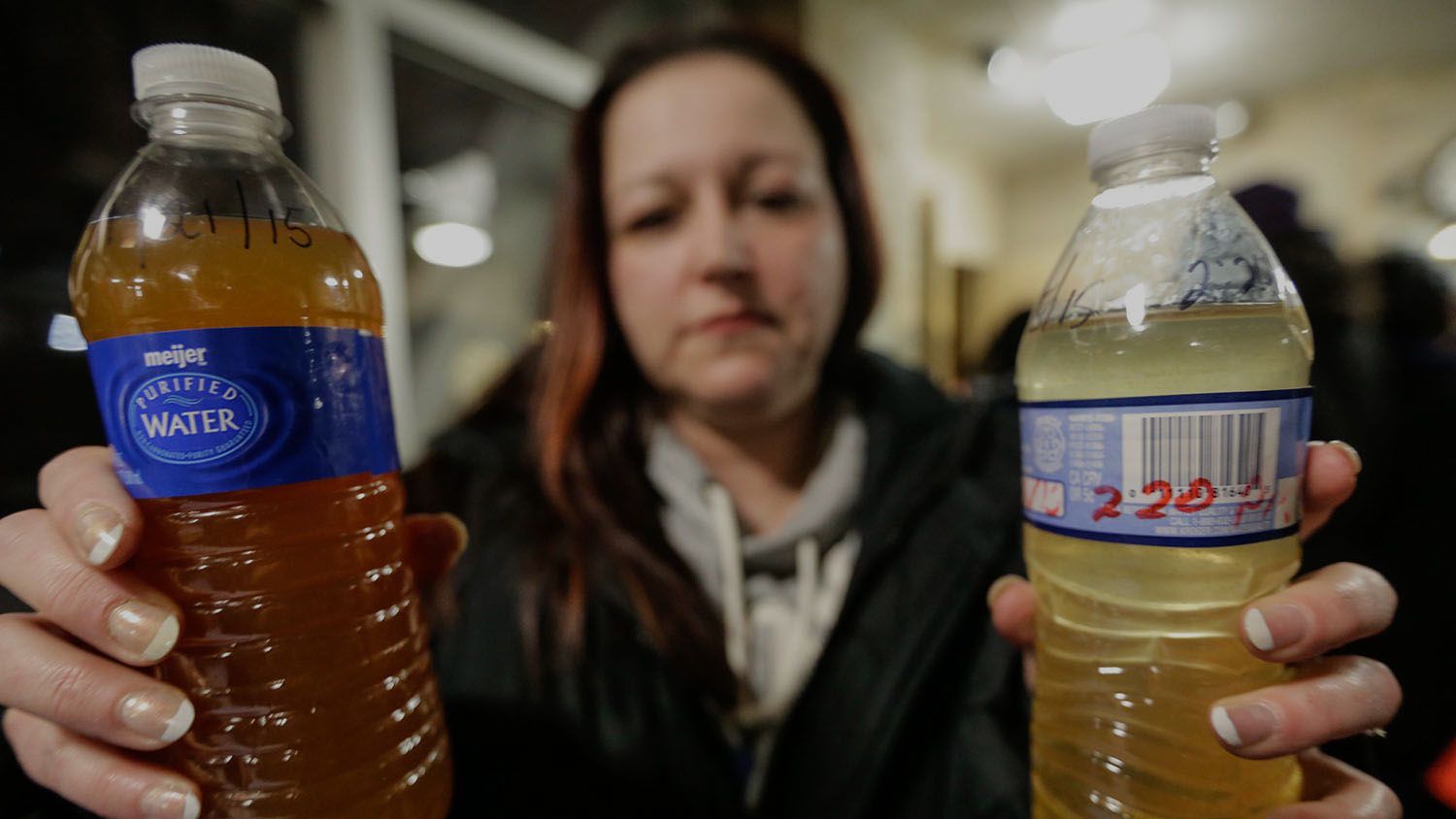Learning the Importance of Safe Water

By Molly Parker, Master student of Water INTERface IGEP and the Department of Human Nutrition, Food, and Excercise of Virginia Tech
Water for Health Seminar has encouraged interdisciplinary thought in relation to the many aspects involved in maintaining clean, healthy, and plentiful water sources and how the water we use daily can easily be taken for granted. This message really hit home through the presentation on the Flint water crisis. Access to safe water is clearly a necessity that must be taken extremely seriously due to the many uses of water every day. We use water to drink, bathe, wash our hands, clean, and prepare meals, but there are also uses of water that we may not always think of, such as in food production, agriculture, and industry. Unfortunately, in Flint, Michigan, access to safe water has became an extremely personal and volatile issue due to governmental and regulatory mishaps.
In 2014, government officials in Flint decided to change drinking water sources from Lake Huron and Detroit River to Flint River because it would be more cost-effective. Negligently, the water was not adequately treated with substances that inhibit corrosion, leading to the leaching of lead from old, corroded pipes. Lead is considered toxic to humans, and children are especially at risk due to their still developing bodies. Residents began to complain about their water, and brought bottles of concerning-looking water to community meetings. Numerous government officials brushed off concerns about the water quality within Flint, but scientists at Virginia Tech were able to demonstrate that there were elevated lead levels in many Flint homes. Eventually, Flint changed their water source back to the Detroit River and aid was provided to affected residents. Now, it is recommended that the public in Flint utilize special filters for water that is to be consumed, but the water is considered safe for bathing.
The story of Flint is not only tragic due to the irresponsible actions by many government officials and the detrimental health impacts from lead exposure, but it also points to the importance of safe water and how this cannot be taken for granted. I have never had to fear that the water coming from my tap is unsafe, and I have never had to fear that I will not have adequate water when I turn on my faucet, so while learning about this water crisis, I tried to place myself in Flint residents’ shoes. No one should have to go through such a terrifying situation that for all too many has irreversible consequences. This story and the many other stories from around the world about unsafe water and shortages of freshwater is a call to action for caring about our communities, our governmental systems, and our environmental impact in order to ensure that all people have access to safe, clean water as a human right.


